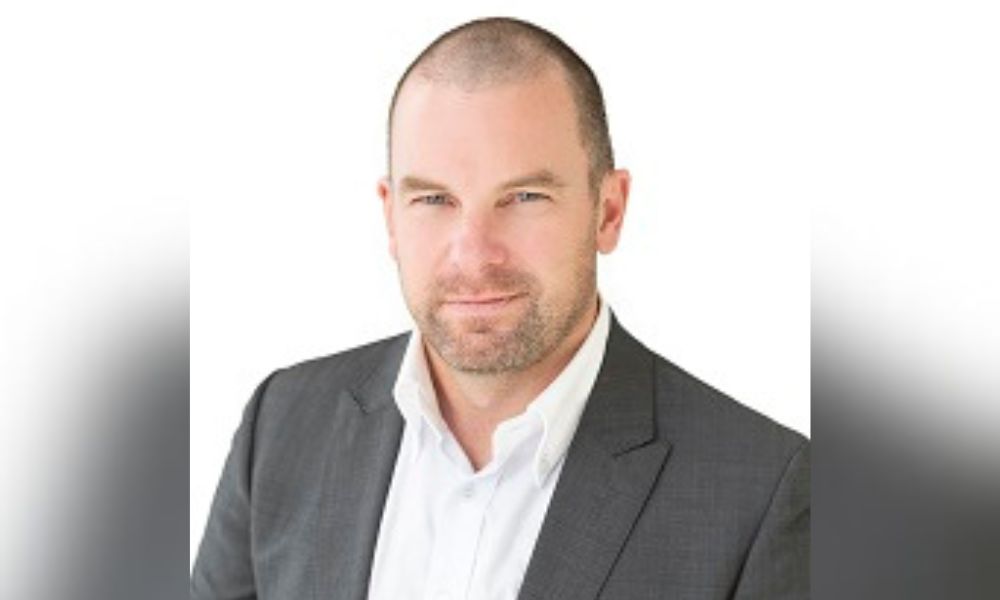Here’s why the insurance market cycle does not matter to Donaldson Brown

Here’s why the insurance market cycle does not matter to Donaldson Brown | Insurance Business New Zealand
Insurance News
Here’s why the insurance market cycle does not matter to Donaldson Brown
Co-founder talks about what the brokerage believes is the right way to approach things
Insurance News
By
Terry Gangcuangco
“We’re not incentivised by premium. We’re incentivised by doing the right thing by the customer.”
Those were the words of Donaldson Brown co-founder Dan Donaldson (pictured) when he recently sat down with Insurance Business to talk about the Kiwi brokerage, which is touted as the most transparent in New Zealand.
When asked how hard the insurance market currently is, Donaldson said it does not matter to the business.
He declared: “The market is the market, and if you’re confident in your ability to deliver value to the customer, it shouldn’t really matter what the market’s doing – if it’s going up or going down, or it’s hard or soft – or what capacity is doing. What matters is doing the right thing by the customer, delivering maximum value, and bringing the insurer to the table as it’s a tri-party relationship…
“We’re incentivised by doing the right thing by the customer. Why should your revenue be linked to that premium and that premium cycle? How does that affect the value you deliver to the customer? You do the best you can for your customer in the market cycle that you’re on.”
Removing conflicts of interest
For Donaldson Brown, which operates on a ‘no hidden commissions’ and full transparency basis, it’s about removing conflicts of interest where possible and having authentic conversations with clients.
“If you really, truly believe that you are adding value and you are valued, then everything about your business should reflect that,” Donaldson told Insurance Business. “But we’ve still got a long way to go. It’s a new model; it hasn’t really been done before, the way that we’ve done it. It’s been tried, and some have gone some of the way. But to actually do it right across the board [is something else].
“We’ve tried to remove conflicts of interest everywhere in our business. We believe that, for example, team bonus structure is better than an individual incentive. Our industry is really famous for individual sales incentives, which are great for the people that sell and are really bad for everyone else that supports the people that sell.”
The co-founder said they work on a team collaborative structure, as opposed to individual salespeople achieving individually.
“We work as a team, and that removes, for us, those traditional conflicts that exist even internally within the business,” he pointed out. “It’s a conflict of interest where a salesperson gets paid a big bonus and all the people that supported them don’t get to share on that, but they were just as important. Everyone in our business is just as important as everybody else. We feel that that’s the right way to go.
“So, we’re trying to apply that transparent, conflict-free methodology as many places as we can. These are new things because they haven’t necessarily been proven in our industry before, so we don’t really have a template. That, for us, is really exciting. We strongly believe it’s the right way to approach things.”
Donaldson added that sometimes the hard road is the right road.
“It’s a lot harder to have an open and transparent conversation with a customer about what you’re worth, rather than have it included in the total cost and not having such an authentic and transparent discussion,” he said. “In our industry, there’s a lot of talk about why don’t we get respected like other professions do, such as lawyers or accountants, when we add just as much value.
“But when it comes to actually having an upfront conversation with someone about ‘this is my value and this is how I’m going to structure things and be remunerated’, we avoid it and don’t act like those other professions. If you really, truly believe that, then you should be prepared to have an authentic conversation with the customer about that, and then remove those conflicts of interest.”
What do you think about this story? Share your thoughts in the comments below.
Related Stories
Keep up with the latest news and events
Join our mailing list, it’s free!






